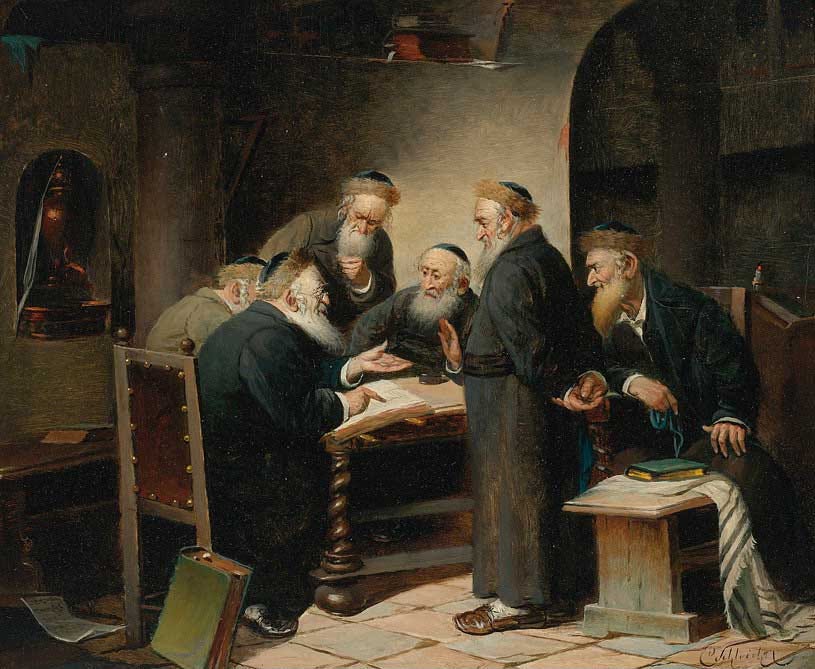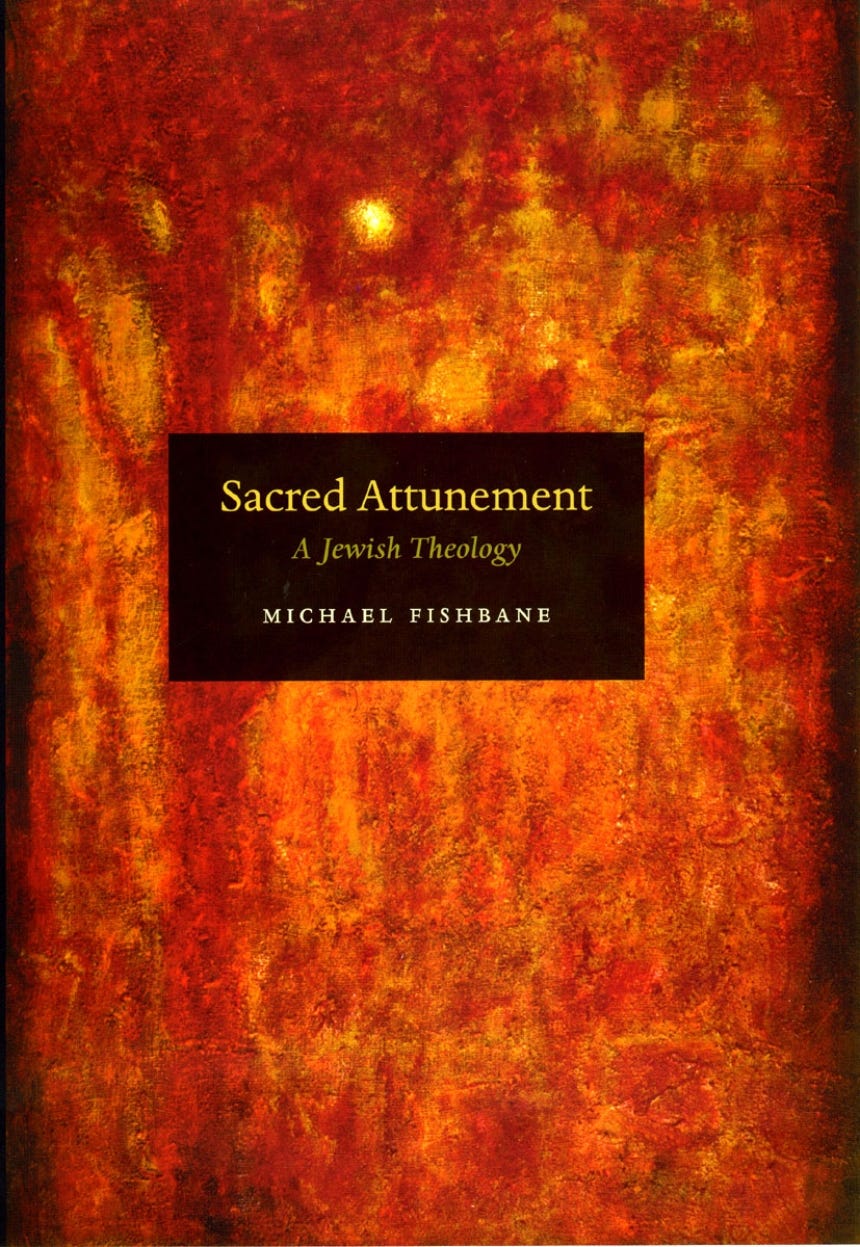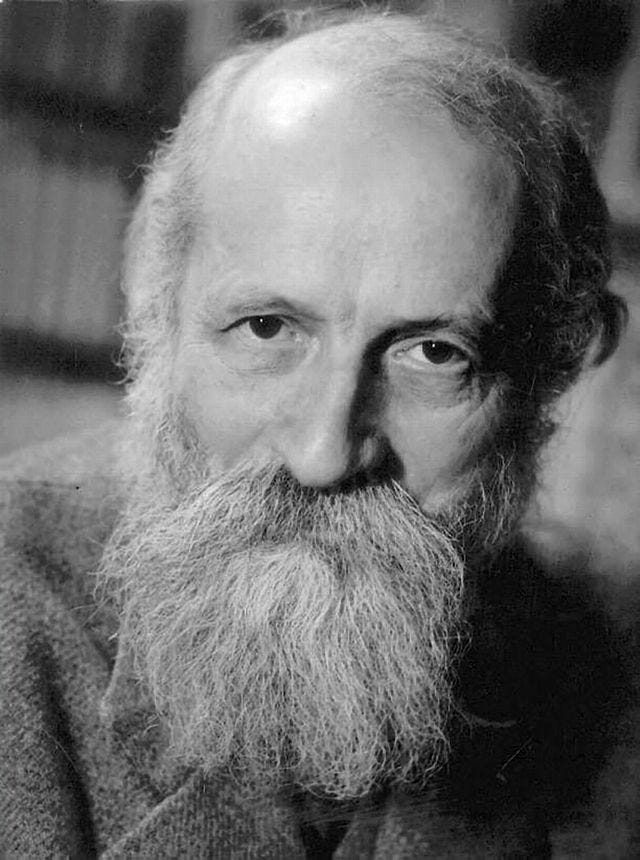The World Is Built by Gratuitous Kindness
Reflections on Jewish theology during the siege on Gaza

Violent conflict in the present elicits a turn to the past and the future. The past becomes the battleground of the present in the search for historical analogies to help understand current events. The future looms large as predictions about what will come after the immediate bloodshed abound.
As Lindsay Graham pushes for expanded “religious war” on behalf of Israel and Benjamin Netanyahu exhorts Israelis to “remember what Amalek has done to you,” it seems impossible to ignore the religious element of Israel’s siege on Gaza. Ancient texts and prophecies of the end times alike cast a long shadow on the present moment.
Though religious rhetoric is often employed to cover up the political and economic roots of the conflict, Graham and Netanyahu’s remarks raise important questions: What might Jewish theology have to say about Israeli policy? How can past theological contributions help chart a path out of the inhuman violence of the present toward a human future?
To help answer these questions, I recently returned to a book on Jewish theology that I read many years ago as an undergraduate student in religious studies. I first encountered Michael Fishbane’s Sacred Attunement: A Jewish Theology in a seminar on Jewish and Christian efforts to grapple with modernity. Not knowing much at all about Judaism, I was somewhat intimidated by the gravitas of the subtitle: “A Jewish Theology.” But the book’s title itself—“Sacred Attunement”—intrigued me.

Sacred Attunement invited me into a religious and ethical world in which the abstractions of theology were deeply grounded in daily spiritual practices. Fishbane articulates this approach as follows:
[T]he first task of theology is to provide a perspective that would place one firmly upon the earth and set forth a framework for the entirety of existence—such as humans may know it in their life-realms. We are not one kind of person when we walk on the earth feeling hunger or love, and then an entirely different sort when we listen to music or talk about theology and religious experience. We are always one and the same; we are always mortal creatures living in this world.
From this grounded starting point, Fishbane advances the concept of “sacred attunement,” which hinges on the relationship between attention to scriptural detail and awareness of external reality.
He writes that the “spiritual discipline in Judaism” centered on the study of scripture has produced “types of interpretation” which can be “understood to foster diverse modes of attention to textual details, which in turn cultivate correlative forms of attention to the world and to divine reality.” In other words, reading sacred texts does not isolate the reader from the world. Rather, the very act of intimacy required in the disciplined attention to textual detail demands certain ways of relating to “natural and supernatural realities” beyond the text.
In his chapter, “Religious Practice and Forms of Attention,” Fishbane provides some specific examples of this point with regard to core concepts in Jewish theology. Particularly interesting is the distinction between nomos (normative law) and hesed (gratuitous kindness). While Jewish theology encompasses the realm of both nomos and hesed, Fishbane argues that nomos, in fact, depends upon hesed for its existence. His explanation merits extended quotation:
Gemilut hasadim is something radically different [from nomos]. It denotes gratuitous kindness (hesed); unrequited care; and supererogatory acts. For the sages, such deeds were typified by clothing the poor; providing a dowry for indigent women; and burying the dead. The common core is that these actions express pure giving—works that cannot be repaid. In a characteristic manner, such and other eleemosynary behaviors were gradually grouped under categories of charity, and were thereby integrated with social duties and nomos in the fullest sense. But they are not. They are anomic, and reflect an anarchic spirituality. One notices a person in radical need, and gives. Such behaviors therefore serve as paradigms for gratuitous care, in response to the claim that another person makes on the self. Hesed cuts deeper than nomos. It cannot be formalized or routinized; it is the deepest source of human beneficence. Indeed, hesed is the inner core of nomos; for without the reality of hesed, nomos would lose its soul. Hesed is the awareness of otherness, and one’s connection to it; hence it is the heart of care. Without hesed we would have no world, only rules for protection; we would only have limits and limitations, not excess or self-sacrifice. Thus the world ultimately stands on hesed. Scripture states this clearly: “The world is built by hesed.”
Much could be said about this remarkable passage, but I want to focus on three sentences which I believe bring much to bear on the current conflict in Israel and Palestine. Fishbane writes that “hesed is the inner core of nomos; for without the reality of hesed, nomos would lose its soul. Hesed is the awareness of otherness, and one’s connection to it; hence it is the heart of care. Without hesed we would have no world, only rules for protection; we would only have limits and limitations, not excess or self-sacrifice.”
The State of Israel has advanced an idea of Jewish identity based solely in nomos. Devoid of an “inner core” of hesed, this secularized ethnostate has come to reject its connection to otherness, particularly the otherness of the Palestinian people. This severing of relationship with the other—the domination of the “I-It” relationship over the “I-Thou” relationship to use Jewish philosopher Martin Buber’s terminology—poses nothing short of existential risks to the world. The Netanyahu government’s genocidal policy goals and willingness to risk World War III to achieve them demonstrates that we may quite literally have no world without hesed.

When nomos is hollowed out—when its inner core of hesed is excised—nothing but “rules for protection” remain. In Israel’s Spartan ethos, this manifests as a society dominated by worship of the Israeli Defense Forces and a culture in which a soldier’s life matters more than a civilian’s. With nothing left but the self—long ago cut off from the other—destruction of the world through global war is also on the table. Nomos bereft of hesed ends in nihilism.
In an interview recently featured in Weekly Grounding #25, Jerusalem-based writer Nathan Thrall was asked how easy it is for Israeli Jews to remain oblivious to the existence of people living within the walled ghetto of Gaza. He responded:
So easy…The whole success of this decades-long system of injustice depends on it being easy for the vast majority of Israeli Jews to ignore it and not feel it…If you are a liberal living in Tel Aviv, you can live your entire life not even thinking about the existence of an occupation and it’s just a few miles away. So the whole system depends on your average Israeli being able to tune this out completely.
Heard in conjunction with Fishbane’s book title, Thrall’s choice of the idiom, “tune this out,” is apt. The apartheid system upheld by the Israeli state is in diametric opposition to the forms of attunement that Fishbane describes as the heart of Jewish theology. The ease with which Israel has enabled Jews to tune out the profound suffering and radical need of the Palestinians can, then, be understood as nothing short of an affront to the spiritual essence of Judaism.
I do not know Fishbane’s perspective on the last month’s violence; perhaps he has a different view of the conflict than I do. All I can offer is my own interpretation of his work. My point here is to illustrate how rich traditions within Jewish theology can be understood to stand firmly against Israel’s incessant effort to “tune out” Gaza. A theology grounded in the concept and practice of sacred attunement could never justify Israeli policy.
This fact is important for at least two reasons. First, it militates against the glib antisemitism in certain quarters of Western politics, especially among the “dissident right,” which relies on a monolithic understanding of Jews as an “ethnos” not unlike Israel’s own secular ethnonationalist self-conception. Second, the theological call to sacred attunement provides Jews with a rich perspective from within their own religious tradition that demands a reconstitution of relations with Palestinians.
Even more importantly, the challenge of hesed is an invitation for us all to consider the radical idea that the world is built by gratuitous kindness.

